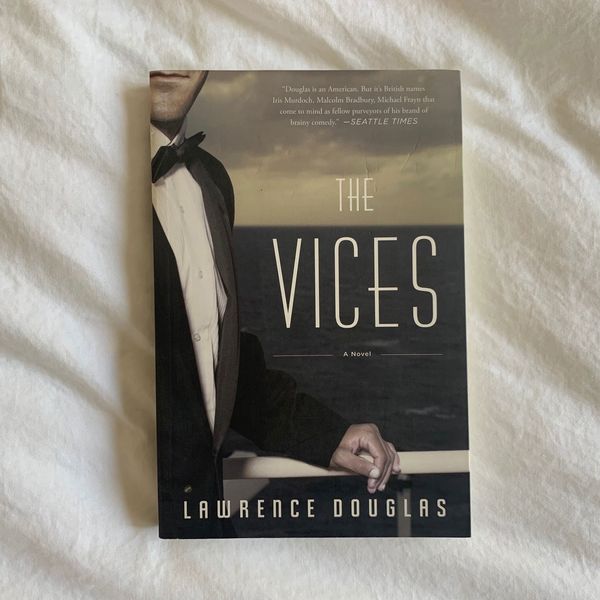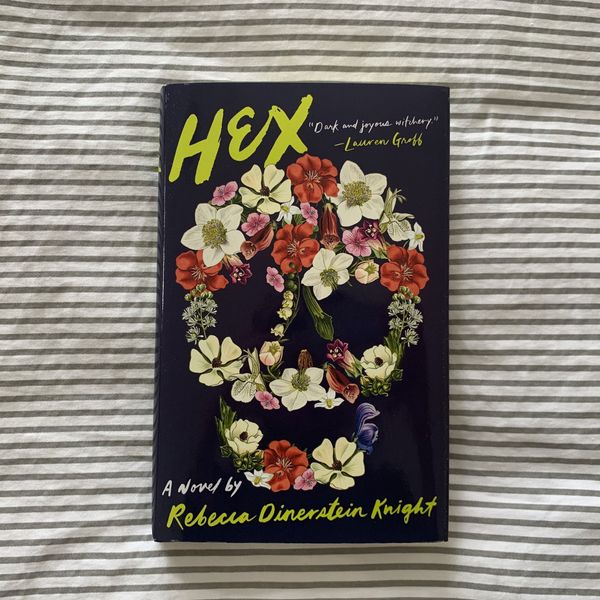
I know a woman who is a wizard of pranks. In high school she gained access to an extra set of her boyfriend’s car keys and started subtly reparking his car when he wasn’t paying attention. Sometimes she moved the car just a foot or two. Sometimes she reparked it across the street. Whether you believe this is hilarity or metaphysical terrorism will depend on your relationship to street parking.
Later, when this same friend worked in an office job, her boss was gifted a jar of jam that she didn’t want. The boss put it on my friend’s desk. (“Here, you have it.”) My friend put the jam back in her boss’s office, but hidden. The boss discovered the concealed jam and hid it back in my friend’s office. This escalated to the point where the boss obtained an old book, cut out the internal pages with an X-Acto knife, placed the jar in the middle, and secreted it in my friend’s office. Five months of jam-hiding!
The jam came to mind because I was thinking: If you’re trying to get someone to read a book that you love, and they won’t read it for some reason, you could try hiding the book in various places (under their pillow, inside their cereal box, behind their booze) until they cave in and, sick of being stalked by a set of bound pages, comply with your demand. Just an idea.
The Vices by Lawrence Douglas
Fiction, 2011
If you’re looking for a suspenseful novel containing many of the Earth’s most interesting topics — art thievery, Nazis, twins, Swiss bank accounts, extortion, chess, contested wills, Iceland — you can fold up this newsletter and, uh, stay home, because this is it. The Vices slots into the beloved and rare category of “literary page-turners,” which means books that acknowledge a formula only to mess with it, and which contain big words. (Kidding. “Literary page-turner” is a marketing category, to distinguish books like this from books with raised metallic lettering on the cover.)
Regardless of genre, this is exactly the kind of book you just want to inject into your veins when summer rolls around. A controversial philosopher goes missing over the side of a luxury cruise ship, prompting his friend (our narrator) to puzzle together the mystery of a life filigreed with secrets and eccentricity. Where does the friend’s family money come from? Why is the friend’s hot Hungarian mom a pathological liar? And what happened on the cruise ship — was it an accident or a suicide? The book’s themes of identity and heritage are meaty enough to chomp on but not dark enough to prompt painful introspection, which nobody needs right now. It’s a joy ride in a fancy car.
RIYL: Siamese cats, Lawrence Osborne, being in the grip of an emotion, yarns, The Game (David Fincher movie)
The Index of Self-Destructive Acts by Christopher Beha
Fiction, May 5
All I want at this instant is a thick-ass novel that interweaves a variety of fascinating characters and makes me forget my troubles. For example, a Tom Wolfe novel. Or, it turns out, a Christopher Beha novel. At 517 pages this one is heavy enough to maim somebody with, which is a marvelous quality when combined with a crafty plot and nimble sentences. The more the better.
Sam Waxworth is what appears to be a fictionalized combination of Nate Silver and Jonah Lehrer: a smart math-y dude who comes up with a baseball forecasting algorithm, sells it to a website, and is subsequently lured to New York City to work at a major publication and predict the future, only to be undone by a plagiarism scandal. Frank Doyle is a legendary opinion columnist who is canceled after going on TV drunk and making racist remarks. Justin Price is a hedge-fund wunderkind plucked from an “underprivileged” family as a child and shuttled by benefactors through a series of posh schools. Herman Nash is a street preacher warning about the end of the world. How do these four men intersect? Why, you’ll never guess!
As a kid I used to take my allowance and, like a squirrel with a nut, hide it in an obscure spot so that I could “find” it later and experience a windfall. Having a book like this on your nightstand replicates the feeling. Just knowing it awaits you is almost as fun as reading it.
RIYL: The Art of Fielding by Chad Harbach, mentally casting the movie of whatever book you are reading, wondering if you should be “in” bitcoin
Hex by Rebecca Dinerstein Knight
Fiction, March 31
“Quirky” is a dangerous word when it comes to art of any kind (or people, for that matter). It’s often a euphemism for a stew of cloying traits: mannered, twee, self-conscious. This may be the first novel I’ve read that illustrates the other side of the quirky coin. It’s playful! Eccentric! Plants are involved! You really have no idea how a particular sentence is going to conclude, even when you’re approaching the end of it.
The story is this: A Columbia grad student gets expelled from her botany program because one of her colleagues dies after exposing herself to a plant toxin, which lowers a cloud of infamy over the lab. The student in question is in love with the program’s department head, who is an eccentric and spellbinding woman. It’s a tale of poison, plants, and academia, with multiple romantic scandals. Who wouldn’t be interested?
Well, I can think of one person. Midway through the book I Googled it and found a bad review in the New York Times. I didn’t find the complaints convincing or the evidence of badness credible — but hey, different strokes. The Times reviewer described the prose style as “peacocking” but I just think it’s “rather good.”
RIYL: Lydia Davis, the word decoction, dabbling in Wicca, Wordsworth’s botanical-themed poems, peacocks
WHY DON’T YOU …
Get MAD AS HELL and refuse to TAKE THIS any more?
BITE YOUR FIST to keep from guffawing in public when pawing through a novel about Bad Millennials?
Cavort in darkness with BRAZILIAN HIPSTERS?
Enjoy a HEART-SHREDDING political thriller of love and jihad?
Remind yourself that ZINES STILL EXIST? I know because… I wrote one.
SUGGESTED PAIRING
Fuel your economic despair with a rip-roaring account of EVEN WORSE economic despair — from a Greek monastery to a post-collapse Iceland.
Every editorial product is independently selected. If you buy something through our links, New York may earn an affiliate commission.
More From This Series
- Matrix and 9 Other Reads I Can’t Get Out of My Head
- The Listening House and 9 Other Reads I Can’t Get Out of My Head
- The Plot and 8 Other Reads I Can’t Get Out of My Head








